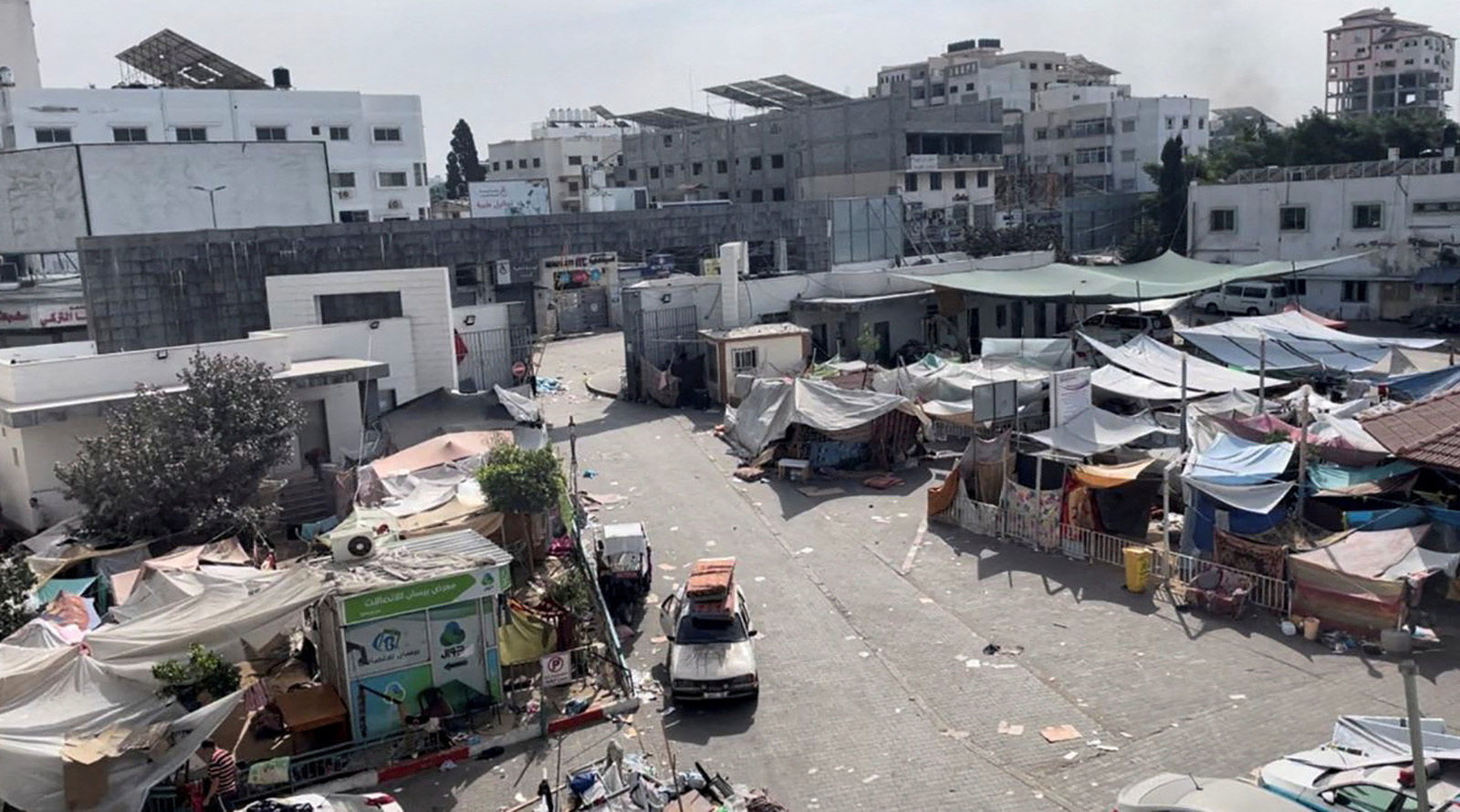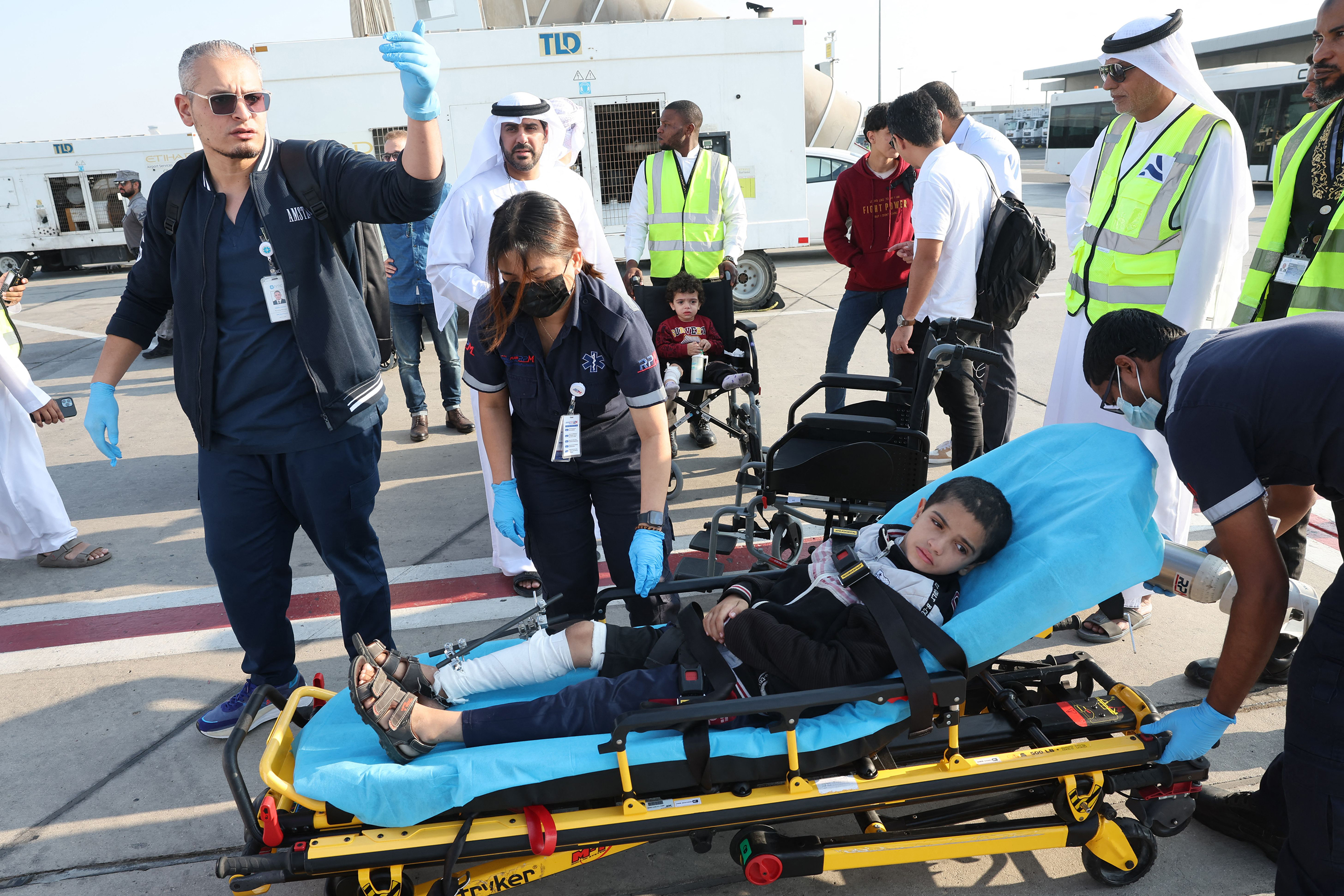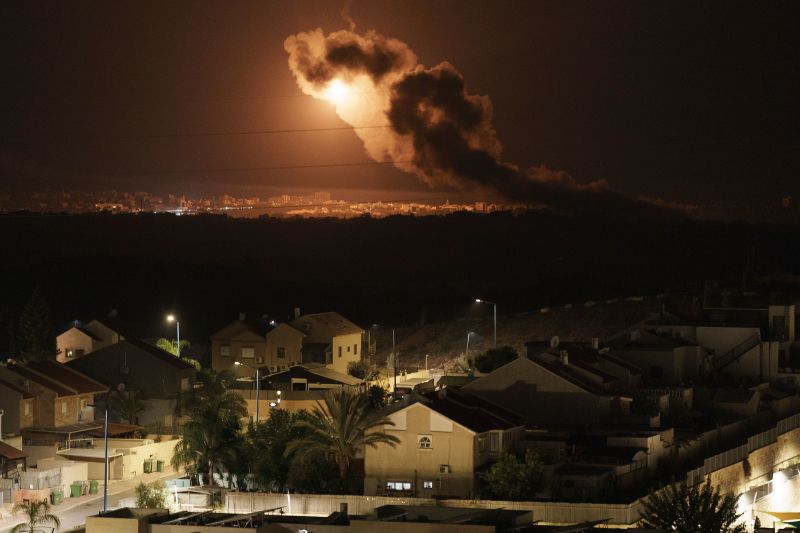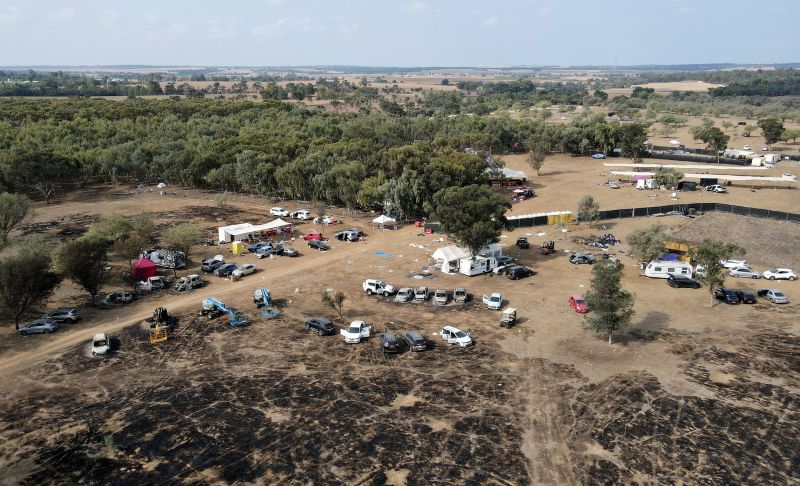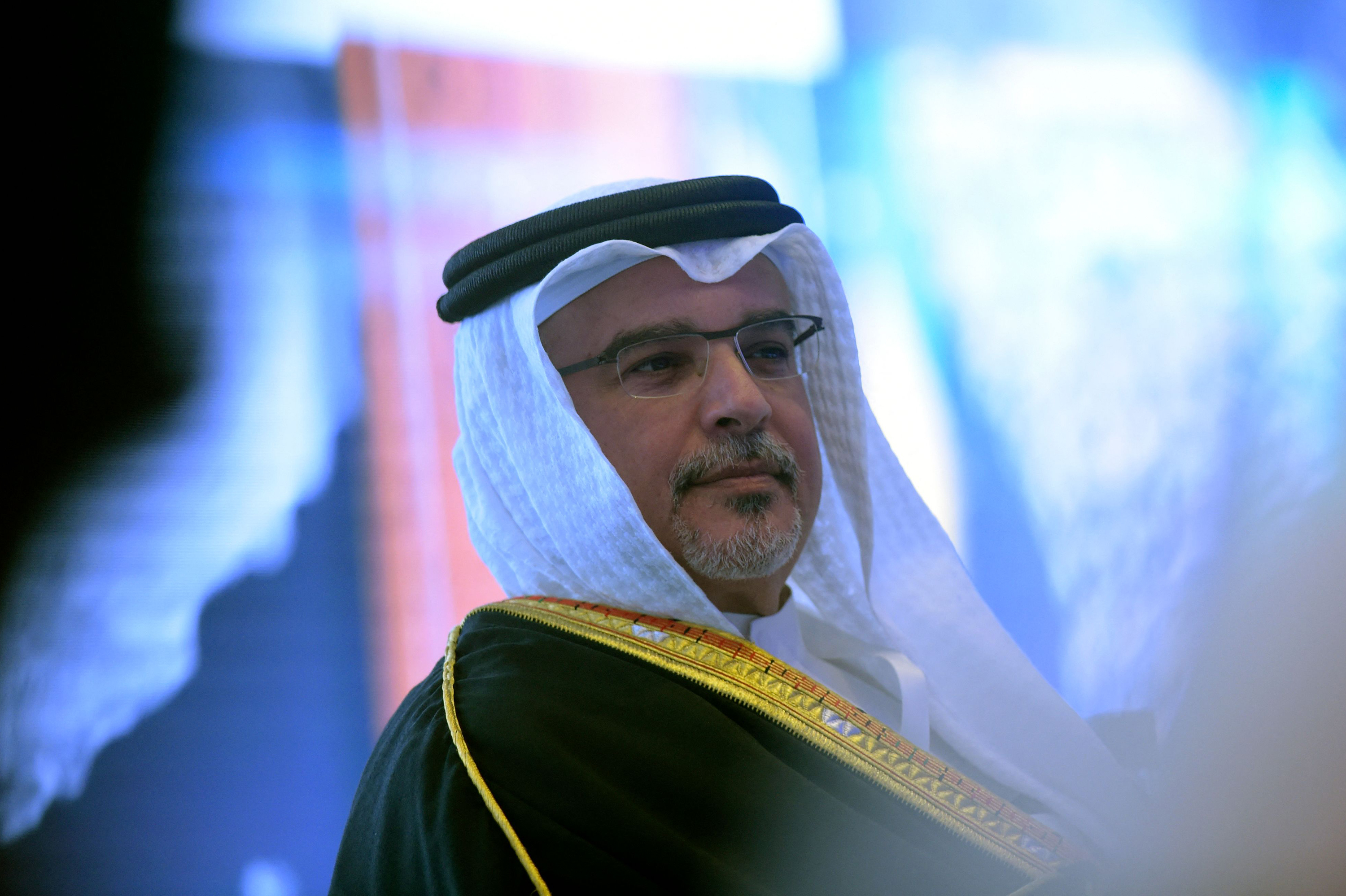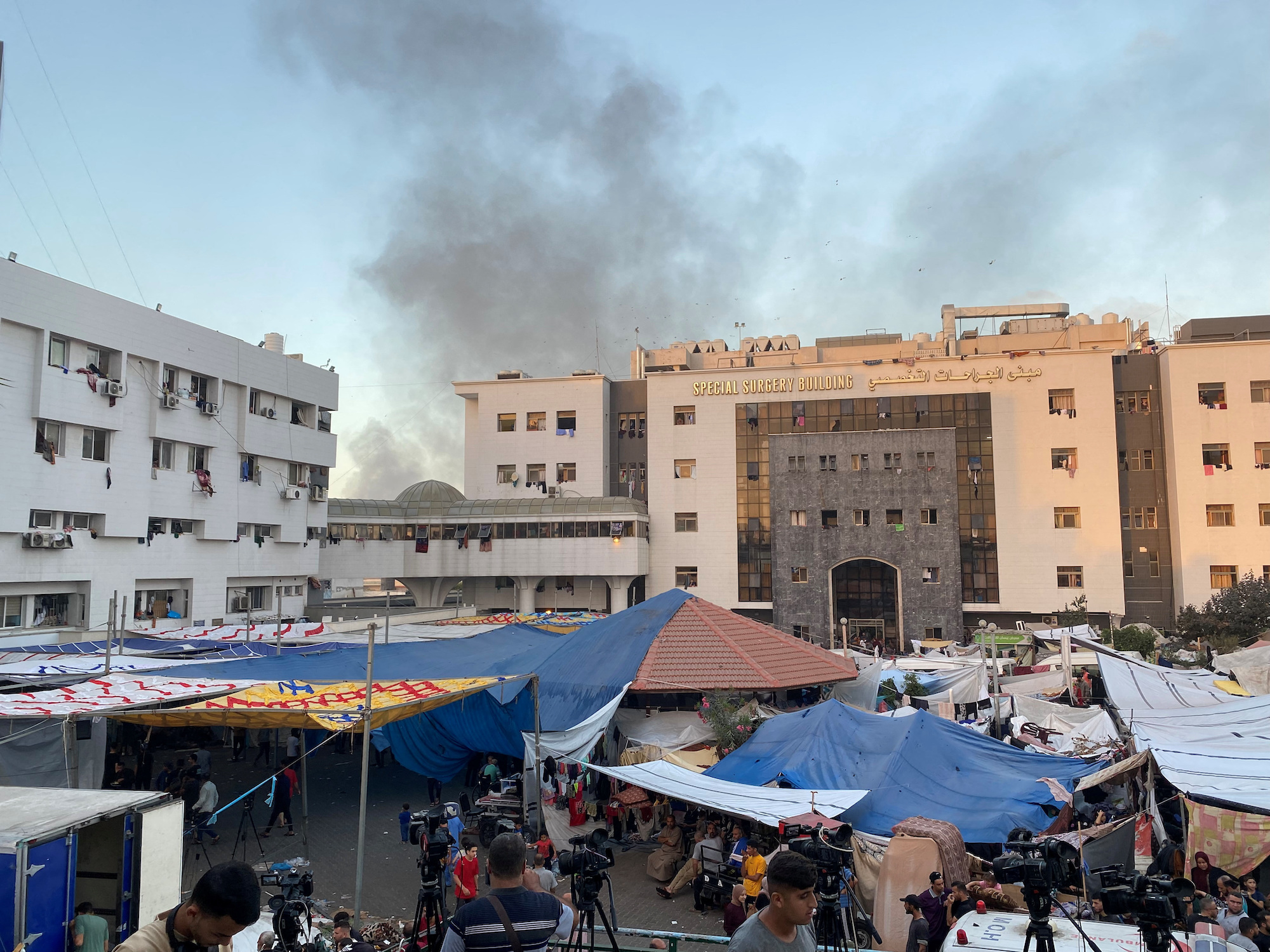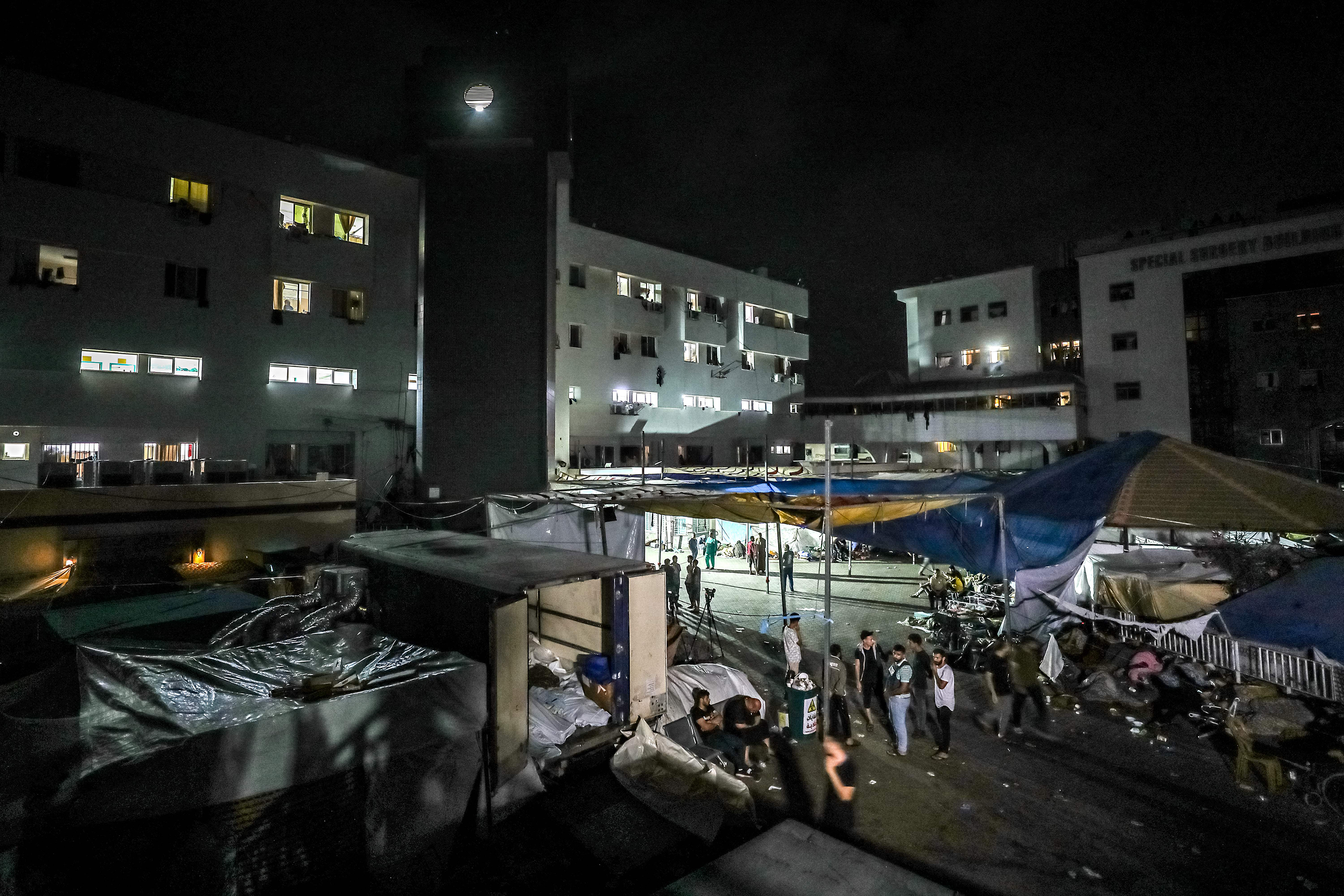Several doctors from Gaza’s Al-Shifa hospital told Al Jazeera on Saturday morning they had left the medical facility after the Israeli military ordered them to evacuate. The Israeli military disputes issuing such an order.
Dr. Munir Al-Bursh said the order had come from a phone call to the hospital director, instructing him to evacuate the entire hospital, with those leaving told to wave white flags or white handkerchiefs.
This was a very humiliating scene,” he said in a live phone interview to the TV channel.
The Israeli army has insisted it did not order people to leave.
At no point, did the IDF order the evacuation of patients or medical teams,” the statement said, adding, “medical personnel will remain in the hospital to support patients who are unable to evacuate.”
Dr. Bursh told Al Jazeera that 120 patients remained inside the hospital, along with five doctors to coordinate the remaining evacuations.
What’s happening at Al-Shifa: Israel launched a “targeted” operation against Hamas early Wednesday morning inside Gaza’s largest hospital, where thousands of displaced Palestinians had been sheltering alongside patients and medical staff.
Israel claims Hamas is using the hospital complex for military purposes and has built a command center under the facility – allegations repeatedly rejected by both Hamas and hospital officials. CNN has not verified the claims of either Israel or Hamas.
The intervening days have seen the hospital turn from civilian sanctuary to battlefield with heavy fighting taking place in and around the complex, amid an already rapidly deteriorating humanitarian situation.
Israel is facing mounting international pressure to prove its claims about Hamas’ infiltration of the hospital, in order to justify some of its military decisions, which could otherwise constitute a possible serious violation of international humanitarian law.
